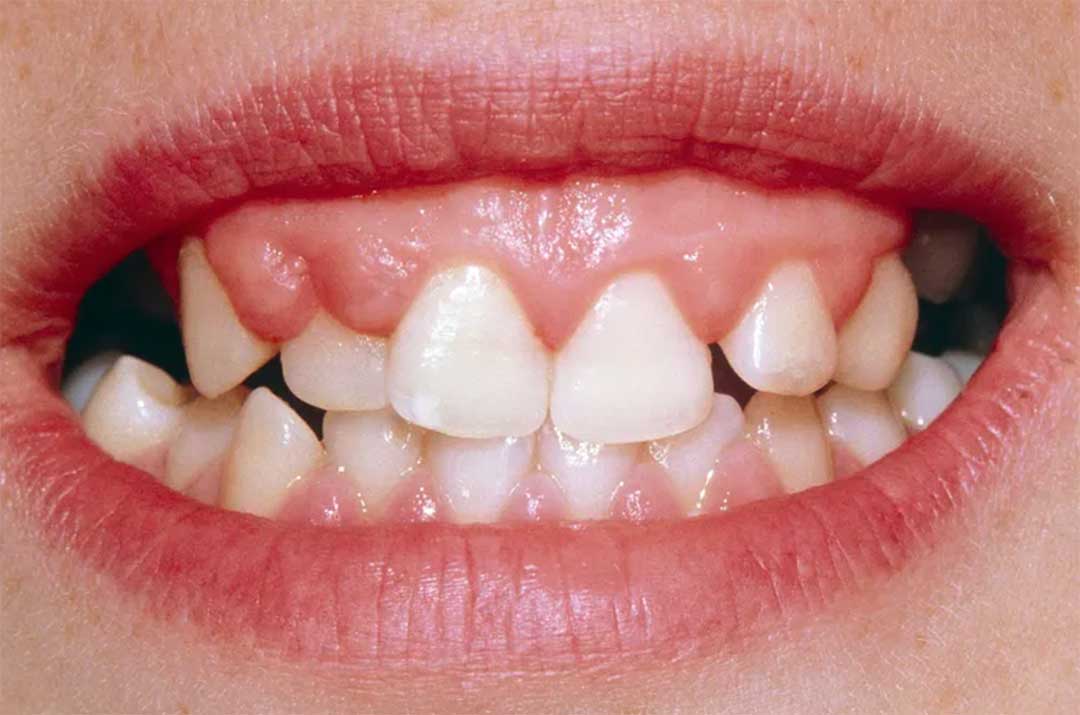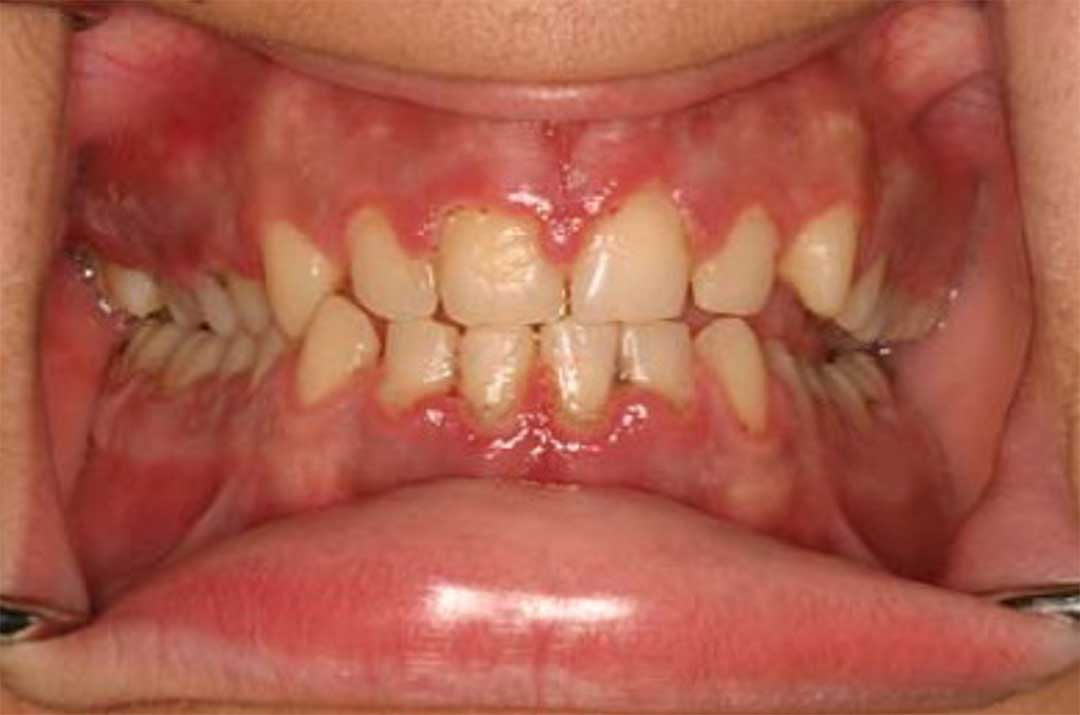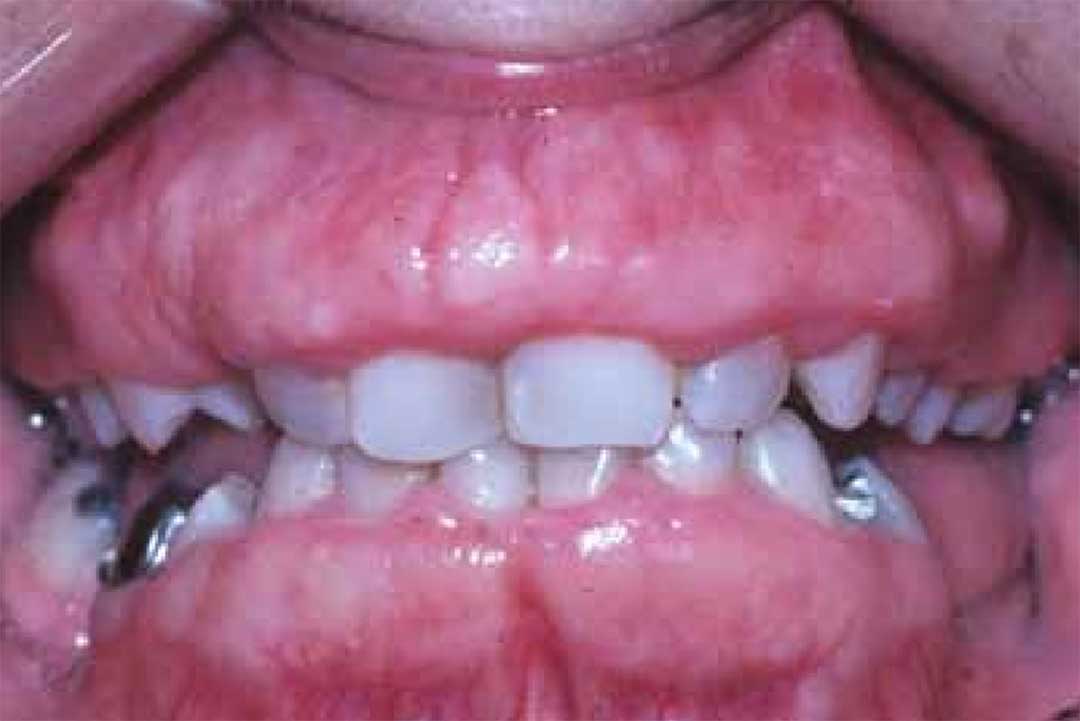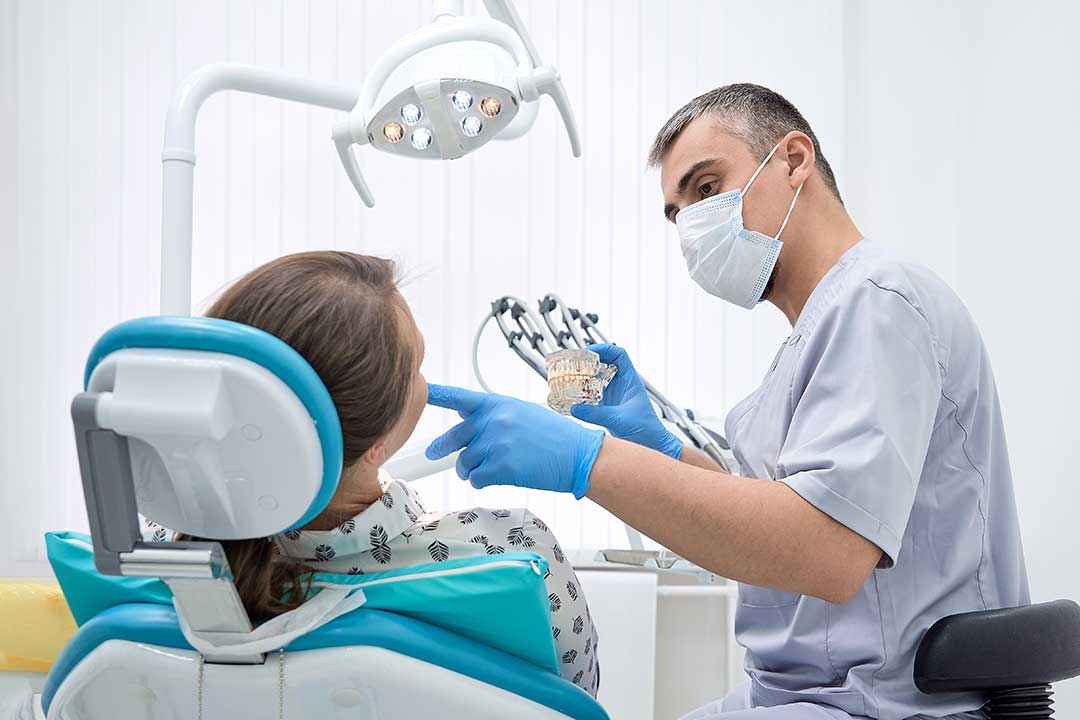Gingival hyperplasia refers to excessive gum tissue growth that can vary in severity. In mild cases, small bumps may appear on the gums, while in more advanced stages, the gums can partially or completely cover the teeth. This is also referred to as gingival hypertrophy or gum enlargement. Our patients often describe this condition as “gums growing over teeth”.
While not contagious, gingival hyperplasia can impact oral hygiene and overall appearance. Understanding the underlying cause is crucial for effective treatment.
Gingival hyperplasia can stem from several factors:

Gingival hyperplasia from anti-seizure medication phenytoin. About 50% of those taking phenytoin will have swelling or overgrowth of their gum tissue. (Photo owned by WebMD)

Gum overgrowth due to poor oral hygiene. (Photo owned by the American Academy of Oral Medicine)

Hereditary gingival fibromatosis in a 37-year-old woman. (Photo from ResearchGate)
Treatment Options
Excessive gum tissue can interfere with daily oral hygiene practices, making it difficult to clean teeth effectively. This can lead to plaque buildup, tooth decay, and gum disease. Treatment for gingival hyperplasia aims to reduce excess gum tissue and restore oral function. Options include:
Consulting a Dental Professional
If you notice signs of gingival hyperplasia, it's essential to consult with a dentist or a periodontist. They can accurately diagnose the condition, determine the underlying cause, and recommend appropriate treatment.
If you’re looking for a second opinion or a new dental practice, please give Drs. Nicolas & Asp Centers a call at 04 394 7777. Our multispeciality dental clinics are conveniently located in Jumeirah, The Springs Souk, Marina Walk, and Uptown Mirdif.


